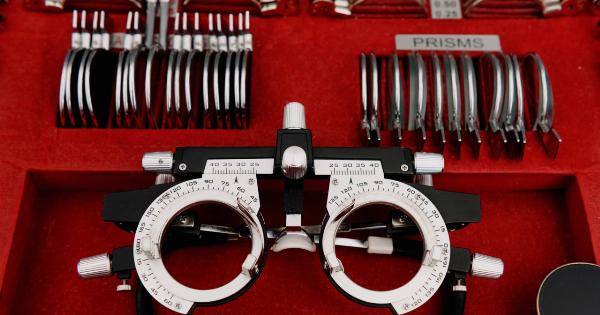Many occupations can be demanding and stressful, but some jobs come with an exceptional amount of pressure and anxiety. These high-stress jobs often require individuals to make quick decisions, multitask, and perform under challenging circumstances.
In this article, we will explore the top stressful occupations in the workforce, shedding light on the unique challenges faced by professionals in these fields.
Military Personnel
Military personnel, including soldiers and officers, face immense stress and pressure in their daily lives. They often have to operate in volatile and life-threatening environments, making split-second decisions that can have life or death consequences.
Continuous exposure to combat situations, the strain of long deployments away from family and friends, and the need to maintain peak physical and mental fitness contribute to the significant stress levels experienced by military personnel.
Emergency Responders
Emergency responders, such as firefighters, paramedics, and police officers, also encounter high levels of stress on a regular basis. They must be ready to handle emergencies, accidents, and crises at a moment’s notice.
These professionals often witness traumatic events, deal with life-threatening situations, and face unpredictable challenges. The pressure to act swiftly and make critical decisions under intense pressure contributes to the stress associated with these occupations.
Medical Professionals
Medical professionals, including doctors, nurses, and surgeons, bear a tremendous amount of responsibility for the well-being and lives of their patients.
They often work long hours in high-pressure environments, dealing with life-or-death situations and making crucial decisions that can significantly impact the outcome of a patient’s health. The emotional toll of dealing with patients in pain, medical emergencies, and the pressure to provide quality care while managing a heavy workload makes the medical profession highly stressful.
Air Traffic Controllers
Air traffic controllers play a vital role in ensuring the safe and efficient movement of aircraft. However, this occupation is known for its intense levels of stress.
Air traffic controllers must stay focused for extended periods, monitoring multiple screens and making split-second decisions to avoid potential collisions. They work in high-pressure environments where even the slightest mistake can have catastrophic consequences.
The constant pressure to handle air traffic effectively and make quick decisions can lead to significant stress and burnout in this demanding field.
Legal Professionals
Lawyers, judges, and legal professionals deal with high-stress situations regularly. They often face immense pressure to meet tight deadlines, prepare complex legal arguments, and represent their clients effectively.
The demanding nature of the legal profession, including long hours, heavy workloads, and the responsibility of defending clients’ interests, can contribute to high levels of stress. Additionally, the emotionally charged nature of many legal cases can take a toll on the mental well-being of legal professionals.
Journalists
Journalism, particularly investigative journalism and reporting on conflict zones, can be an incredibly stressful occupation.
Journalists often work in dangerous environments and face risks to their safety while seeking the truth and reporting on critical issues. The pressure to meet deadlines, gather accurate information, and develop compelling stories amid challenging circumstances can lead to high levels of stress and emotional strain.
Teaching
Teaching is a profession that requires a significant amount of energy, patience, and adaptability. Educators often face demanding work schedules, large class sizes, and diverse student needs.
They are responsible for shaping young minds, meeting educational goals, and managing administrative tasks—all of which can be overwhelming. Additionally, the emotional investment in students’ well-being, along with the pressure to deliver effective lessons, can contribute to the stress teachers experience.
Event Planner
Event planning may seem glamorous, but it comes with its fair share of stress. Event planners are responsible for coordinating and executing large-scale events, such as conferences, weddings, and corporate gatherings.
They must juggle multiple tasks simultaneously, work within tight budgets, manage vendors, and ensure everything runs smoothly. The pressure to meet clients’ expectations, handle unforeseen issues, and deliver flawless events can lead to high levels of stress in this profession.
Transportation Professionals
Transportation professionals, including truck drivers, pilots, and train conductors, operate in high-stress environments that require exceptional focus and responsibility.
Truck drivers spend long hours on the road, facing tight deadlines, traffic congestion, and potential risks to their safety. Pilots must manage complex aircraft systems, make critical decisions, and navigate through various weather conditions. Train conductors are responsible for the safety of passengers and cargo, ensuring schedules are met while managing potential risks.
The demands of transportation professions, combined with potential risks and long hours, make these occupations highly stressful.
Customer Service Representatives
Customer service representatives often face high levels of stress due to the nature of their roles. They are responsible for resolving customer issues, handling complaints, and providing assistance in a polite and professional manner.
Dealing with irate customers, meeting targets, and maintaining a positive attitude in challenging situations can take a toll on the mental and emotional well-being of customer service representatives.
Conclusion
The aforementioned occupations represent a mere fraction of the many stressful jobs present in the workforce.
From military personnel and emergency responders to medical professionals and lawyers, each of these occupations demands a unique combination of skills, resilience, and adaptability. While stress levels may differ between individuals, it is crucial to prioritize mental well-being and develop coping mechanisms to manage stress effectively in these challenging professions.






























